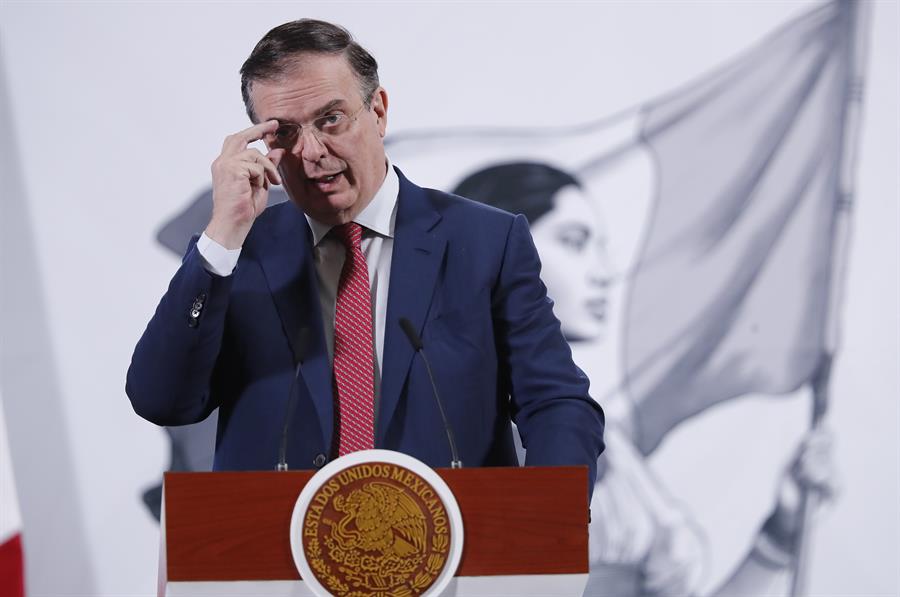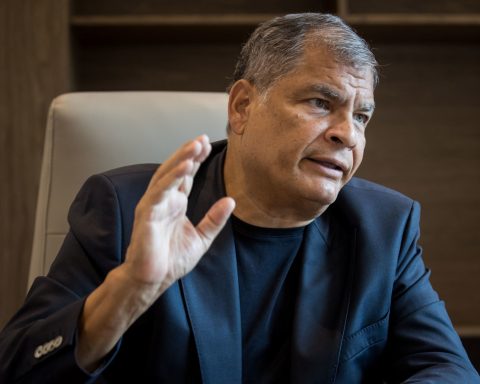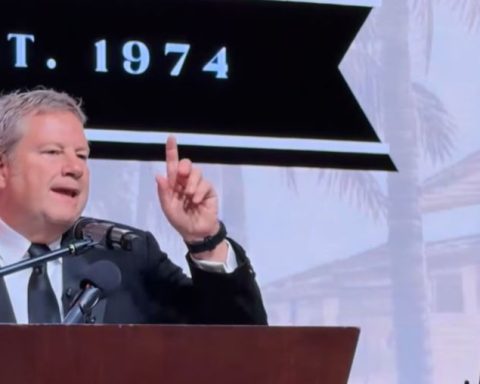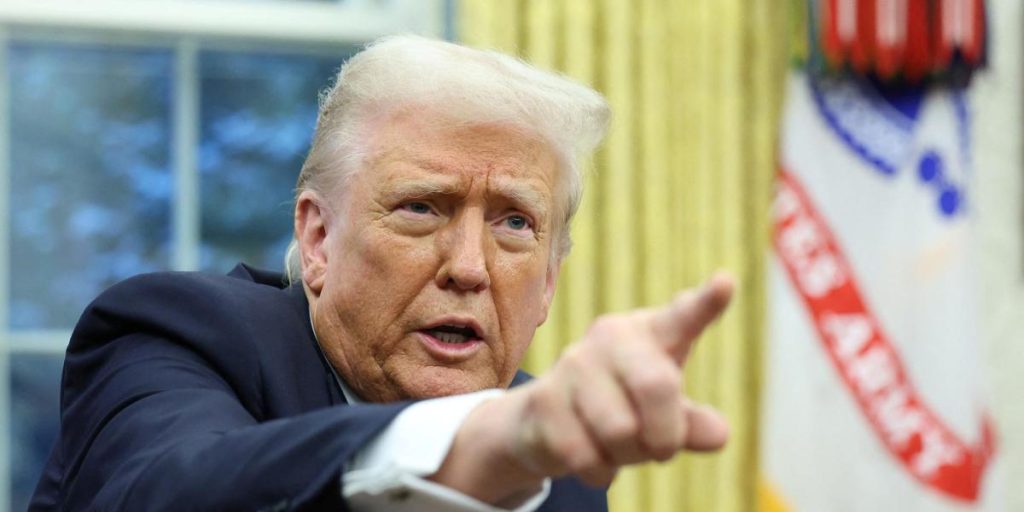“Common sense. No bullet on the foot. Do not destroy what we have built in the last 40 years, ”said the Secretary of Economy, Marcelo Ebrard on Tuesday, by expressing the rejection of the Mexican government to 25 % tariffs to steel and aluminum that the US administration will apply from the March 12 without exceptions.
It is unfair, said the official, because “the United States sells us more, almost 6,897 million dollars more than we export. Therefore his balance is favorable. ”
Ebrard announced that the next week he will look for the next US trade secretary (who will take possession these days) to explain that by Mexico “there is no such thousand 600 % increase”, as established in those considered from the decree of President Trump for Apply the tariff.
“We don’t like rates, according to President Trump’s own,” he accentuated. “And we take the word to President Donald Trump when he talks about common sense.
Surplus in favor of Washington
Mexico is the main destination of the export of total synder -artic products in the United States, representing 52 % of its global exports at the end of 2024.
The United States surplus in its transactions with Mexico is 1.2 million average tons since 2015 and in 2025 it reached 2.3 million tons.
On the other hand, Mexico’s exports to the United States have returned to 2015-2017 levels, Ebrard argued during the presidential press conference on Tuesday.
https://www.youtube.com/watch?v=e7_6c3p80x4
Bumerán
Steel and aluminum levies could seriously impact on national automotive companies, including Ford, GM and Stellantis, and make vehicles in those companies more expensive for buyers in the country, experts estimated.
“Steel producers have to find ways to increase capacity, and aluminum and steel could shorten in the short term,” said Sam Fiorani, an autoforecast solution analyst.
“Producing vehicles has many moving parts, and increasing the price of what is one of the most important components of the vehicle will only raise the prices of a product that is already expensive,” Fioreni finished.
The average transaction price for a new vehicle in the United States in January was $ 481, according to the Kelley Blue Book, a considerable investment for a consumer sensitive to inflation.
“Tariffs like these do nothing to improve the automotive industry directly,” said Fiorani.
For the general director of Ford, Jim Farley, Trump’s first actions in office that also include 25 % tariff .
The Trump government has also disrupted the electric vehicle policy established by former president Joe Biden by affecting the load infrastructure of electric vehicles, as well as the review of vehicle emission standards and fuel performance, all of which could influence The plans of car manufacturers to decarbonize.
Automotive companies have already reduced some electrification plans due to market changes.
“We are concerned about the effects on consumer products such as cars,” said Glenn Stevens Jr., Executive Director of Michauto, a state association of the automotive industry.
“The concern whenever you have a scenario like this and I am not an economist, but I follow this very closely is that the shortest prices benefits for steel and aluminum for national production are opacked by a decrease in the Effects on the consumption chain, ”the manager evaluated.
Brussels and Ottawa on War Foot
Meanwhile, the European Union and Canada promised on Tuesday a firm response to US tariffs on steel and aluminum, announced by President Donald Trump.
Before the attack of the White House, the president of the European Commission, Ursula von der Leyen, warned that “the unjustified tariffs to the EU will not remain without a response”, and promised “firm and proportional” measures.
These tariffs will strongly affect Canada, main steel and aluminum supplier of the United States. They also hit Brazil, Mexico and South Korea, important steel suppliers.
The head of the Government of Canada, Justin Trudeau, said Tuesday in Paris, France, that his country will react “with energy and firmness” to the tariffs announced by the Trump in Washington.
Other reactions
The Steel Federation in the United Kingdom, UK Steel, fears that the new tariffs will propose a “devastating blow” to a sector already in decline.
In Germany, the European economic locomotive, the head of the Government, Olaf Scholz, said that the European bloc will present a “united front, and expressed its hope of“ being able to avoid the wrong path of tariffs and counter -arralers ”
For his part, the French Foreign Minister Jean-Noel Barrot said that the EU “would respond” as he did during the first mandate of US President.
Meanwhile, South Korea – another country severely affected by American tariffs – opted for a more conciliatory position with Washington.
The interim head of state, Choi Sang-Mok, said that South Korea intends to “protect the interests of companies and reduce uncertainties by building a close relationship with the Trump administration and expand our diplomatic options.”
https://www.youtube.com/watch?v=SBRVCQQW86Y
Brazil
Brazil “does not stimulate or enter any commercial war,” said Institutional Relations Minister Alexandre Padilha, during an official act. The South American giant is the second United States steel supplier.
“President Lula has always said very clearly: trade wars do not do anyone well,” he added.
Brazil has positioned itself as one of the main primary aluminum producers worldwide, while in 2024 in the production of steel, the South American giant was the ninth largest producer with 33.7 metric tons, being its steel industry a matter exporter Prima to approximately a hundred nations.

















